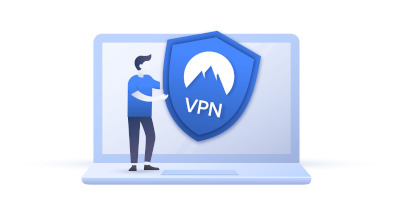How Does A Router Work To Protect Me?
Most consumer routers are both a router and firewall. The router’s two main jobs are to connect our devices to the internet and to block unauthorized access to our network. It’s a little more complicated than that, but in general, that’s what a router does.
Below are some of the features your router/firewall may have that make you more secure.
1. Network Address Translation (NAT)

When you connect your laptop or phone to your Local Area Network (LAN), you get assigned an IP address. This address is only used when communicating with devices within your LAN. When access the internet, your internal IP is masked and your router uses the WAN IP address assigned by your ISP. All of your internal devices will share the WAN IP address. Your router keeps track of your devices and knows how to send responses back to the correct device.
2. Stateful Packet Inspection (SPI)

If your router has the SPI feature, you can create rules based on protocols, ports, and states. Your router will inspect all traffic going through it and based on the rules it will allow or block the traffic. You can create very specific and complex rules with SPI.
3. Unified Threat Management (UTM)

An advancement in firewall technology, UTM incorporates antivirus and malware detection. This capability is typically tied to a cloud service, as you will need definition updates to detect new viruses or malware. Having UTM enabled will block a known virus at the router before it can even reach your computer.
4. Next-generation Firewall (NGFW)

Consumer routers are not likely to have NGFW features. These are far more sophisticated technologies and are typically only available on enterprise firewalls.
5. Guest Network

Most routers you can buy today will have an option to enable a “Guest” network. This creates an isolated VLAN (Virtual Local Area Network). Devices connected to the Guest network can not access any other device in your network. It can only access the internet. This is a great way to give access to someone visiting that you don’t necessarily want to have access to anything else.
6. Parental Controls

Parental Controls will allow you to block specific websites, restrict a child’s access to the internet, restrict the number of hours a child can be online per day. These features can be useful for other members of the family, not just children.
7. Virtual Private Network (VPN) Server

Setting up your VPN server on your router will allow you to remote access your home network securely. In the same way, many of you use a VPN to connect to work, you can have a home VPN to connect to home.
Conclusion
Think of your router as a cop in the middle of the intersection controlling the traffic. The cop can control the speed, change the direction, and even make the vehicle stop.




